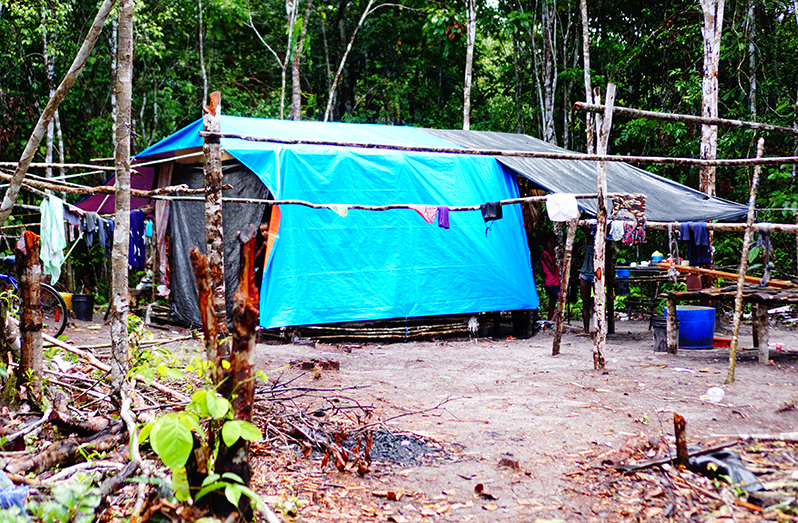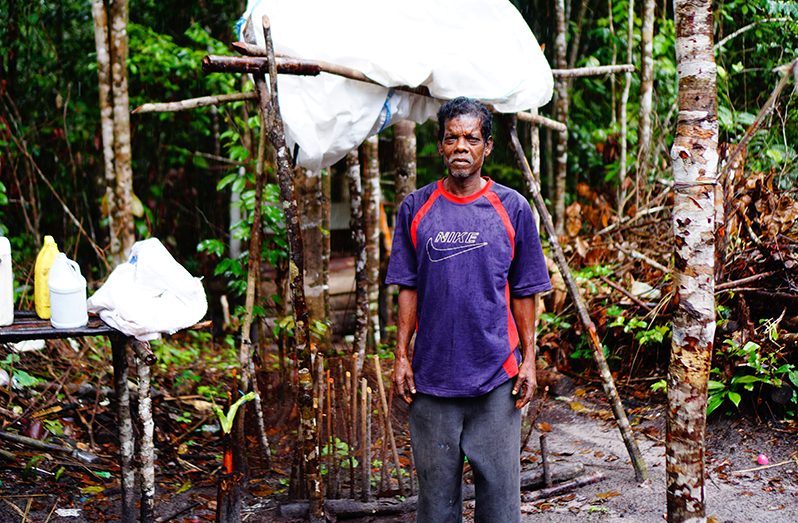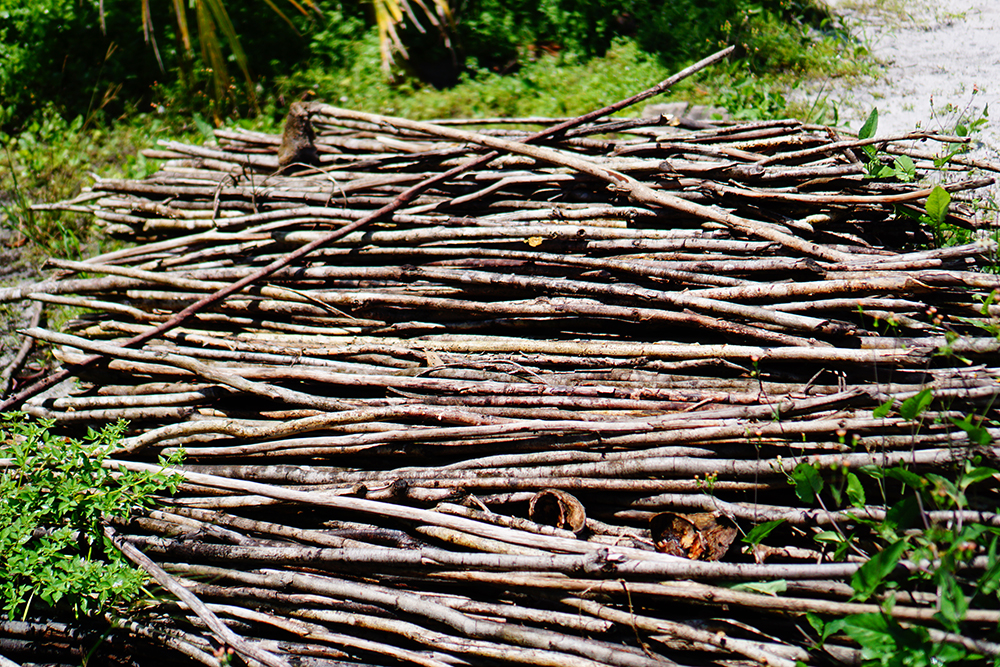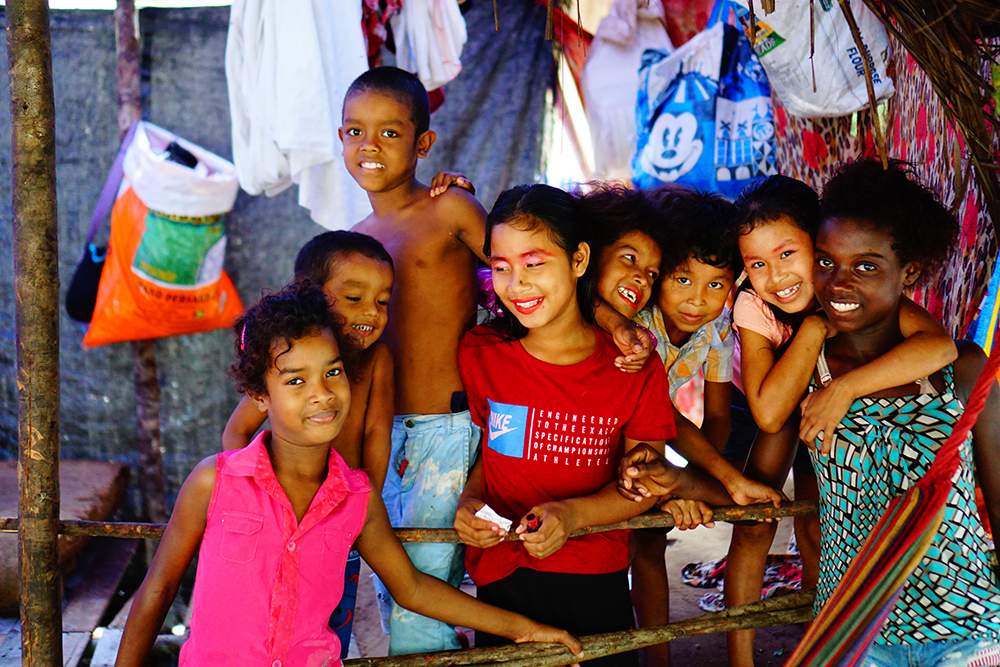OPPORTUNITIES are not in abundance for the people residing in villages on the Soesdyke-Linden Highway; as such, they have to find honest means to earn and Dennis Stephens did just that.
He is from Long Creek Village, one of the biggest villages along the highway and for the past 25 years he has been walking and working in the forested area of the village, cutting trees to make ‘bora sticks,’ which he would sell by the bundle to farmers in the community.
Stephens is a father of four and is originally from Maria’s Pleasure, Demerara River and left his home village in search of a better life and settled in Tigerbone Banakari village, where he spent some years and later relocated to Long Creek.

The 56-year-old told the Pepperpot Magazine that he has been cutting the branches of a particular tree in the wooded area in Long Creek and would place them in a certain length and 25 per bundle. The bora sticks are used in gardens and large-scale farms to promote the growth of the bora plant, which is basically a vine that runs producing the vegetable, bora.
He would tie them and leave them in one place in the forested area and once weekly, a canter truck would come into the village and take them away and he would earn. Stephens disclosed that a bora stick is just eight dollars each and 25 are in a bundle; he would try to cut and parcel more than 10 bundles per week.
He explained that he would wake up at 02:30hrs every morning and begin his journey from his camp in Long Creek and would equip himself with his cutlasses, which he had sharpened and would walk for miles before he can start cutting bora sticks.
Stephens has a makeshift camp where he has a hammock, a mattress, some cooking utensils and a fireside where he would rest and cook after a hard day’s work. “This job is seasonal, because when it begins to rain a lot I can’t go in the forested area due to the dangers involved, so I would be without work for a few months at times,” he said.
He added that the job is working with himself and sometimes his grandchildren would accompany him to assist and together they would cut 15 bundles, the most. Stephens is a very humble, hardworking man, who supports his many grandchildren-more than-seven, some of whom were at his camp that day.
When the team met him after journeying through a small trail for miles, he was relaxing in his hammock after working and it was a very rainy day. The eldest of his granddaughters had prepared a meal of curried chicken and rice and they all ate and waited out the rainfall.
Stephens stated that when the weather is good there is no day-off and he would make use of the good weather to cut as many bora sticks as he can, so when he can’t, at least he can sell what he had stockpiled.
He explained that every Thursday the wholesale buyer would visit to uplift the bora sticks and he would be paid and that money is used to buy groceries to cook. Stephens stated that even though he is not in the best of health, he has to work because he has people depending on him and he would do what he can in view of the circumstances.
“There are no other jobs around here, so I had to do something and cutting bora sticks even though it is not an easy task was my best option, so that’s how I ended up doing this type of work,” he said. Stephens like most people living in the communities along the highway make the most of life and work very hard to earn and they utilise their skills to do so, with little resources at their disposal.
He reported that he is a simple man just trying to earn and he is doing so the right way. “I don’t have a lot of options, I am a poor man and I am doing what I know and it is hard, slow work, manual labour, but it is my hustle and I have to do it,” he said.



.jpg)











